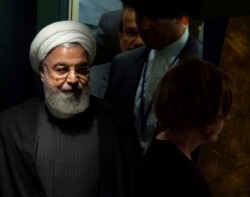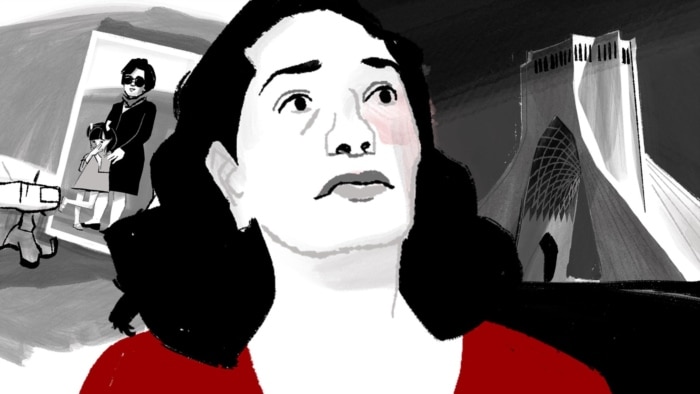This article originated in VOA's Persian Service.
WASHINGTON - A high-ranking U.S. diplomat has shared new details about how U.S. authorities will implement a recent presidential order to block senior Iranian officials and their family members from entering the country.
In an exclusive interview with VOA Persian at the State Department, U.S. Special Representative for Iran Brian Hook said the Trump administration has "a lot of discretion" in deciding which "senior" Iranian officials to include in the entry ban. "We intend to be very expansionist in our definition of that. But I won't go into specific names," Hook said.
U.S. President Donald Trump declared the entry ban in a Sept. 25 proclamation ordering U.S. authorities to "restrict and suspend" the ability of "senior government officials of Iran and their immediate family members" to enter the U.S. as immigrants or nonimmigrants. It was his latest move in what he has called a "maximum pressure" campaign to pressure Iran to end perceived malign behaviors.
Hook also said the "immediate" family members will include the spouses and children of those Iranian officials deemed senior enough to be barred entry. He said he did not know whether any Iranian officials had yet been added to a blocked entry list under the proclamation.
Speaking on the sidelines of the U.N. General Assembly in New York last month, Iranian President Hassan Rouhani criticized the U.S. entry ban but also appeared to dismiss it as irrelevant, saying Iranian officials have no desire to travel to the U.S. except to participate in meetings of international bodies.
Hook said the entry ban is as much about the immediate family members as it is about the senior Iranian officials. "We are aware of stories of children of regime elites who are enjoying U.S. educational, cultural and entertainment advantages that are denied to the Iranian people," he said.
In an October 2018 op-ed published by The Washington Times, Foundation for Defense of Democracies senior Iran analyst Tzvi Kahn identified several children of senior Iranian officials as being enrolled in U.S. universities. The State Department has said there are "thousands" of Iranian students studying in the U.S. each year.
Trump's proclamation said the entry ban would not apply to Iranians in three categories: lawful U.S. permanent residents; people already granted asylum and refugee status by the U.S. or deemed to be at risk of torture if deported; and people whose entry could benefit U.S. interests and law enforcement objectives. The document did not say anything about Iranians already in the U.S. on student visas or those seeking to enter the country on student visas.
When asked if the entry ban will lead to the deportation of senior Iranian officials or family members who already had legally entered the U.S., Hook said the measure is not "retroactive." "It will be effective from the date the president signed the proclamation and will deal with everything going forward," he added.
In a VOA Persian interview one day after the entry ban was declared, FDD research director David Adesnik said children of senior Iranian officials studying in the U.S. on short-term student visas could face challenges in completing their U.S.-based studies.
"It's possible that the U.S. would renew their visas. But there is a constant stream of young Iranians who want to come to the U.S. to get the best education, and they definitely are going to be affected," Adesnik said.
Hook said the Trump administration will continue to honor its obligations to allow the entry of Iranian officials for gatherings of multilateral organizations hosted by the U.S., such as the U.N. and World Bank. "But outside of those cases, this [entry ban] is something which we will rigorously enforce," he said.


